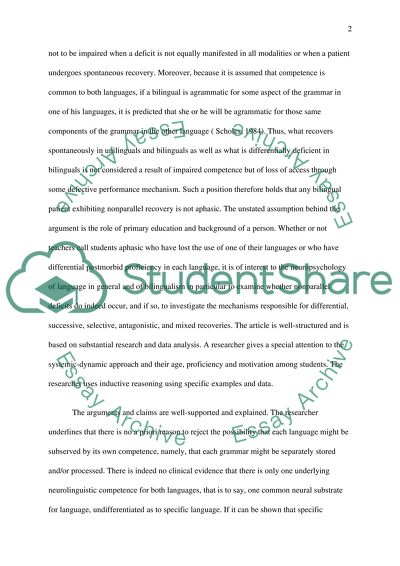A Systemic-Dynamic Lurian Approach to Aphasia by B. K.Friedgut Article. Retrieved from https://studentshare.org/sociology/1520792-cognitive-problems-of-bilingual-speakers
A Systemic-Dynamic Lurian Approach to Aphasia by B. K.Friedgut Article. https://studentshare.org/sociology/1520792-cognitive-problems-of-bilingual-speakers.


